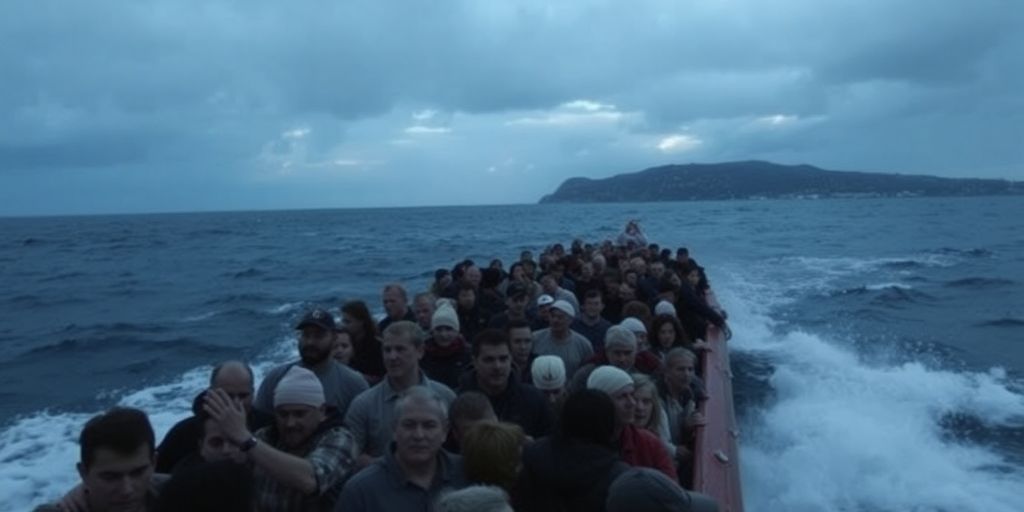Greece is facing widespread condemnation from human rights organizations and international bodies over its newly enacted asylum laws and refugee policies. The controversial measures, including a three-month suspension of asylum applications for those arriving from North Africa by sea, have sparked concerns about potential violations of international and EU law, and the humanitarian impact on vulnerable individuals seeking protection.
Greece’s Controversial Asylum Suspension
In a move that has drawn sharp criticism, Greece’s Prime Minister Kyriakos Mitsotakis announced a three-month suspension of asylum applications for individuals arriving by sea from North Africa. This decision, which quickly passed through the Greek Parliament, was justified by the government as an "extraordinary measure" to address a perceived "state of emergency" due to increased arrivals on islands like Gavdos and Crete.
- The suspension applies to all arrivals from North Africa via sea routes.
- The government cited a 350% increase in arrivals, claiming many do not qualify for humanitarian protection.
- Those affected by the suspension face detention or deportation without their asylum claims being assessed.
International Outcry and Legal Concerns
Human rights groups and international organizations have vehemently denounced Greece’s new policies, arguing they flagrantly breach international and EU law. Critics highlight that the right to seek asylum is a fundamental human right, regardless of how one arrives in a country.
- UNHCR: Warned that the suspension risks breaching international law and undermines Greece’s commitment to protecting those fleeing conflict.
- Amnesty International: Stated the proposals "flagrantly violate international law" and will "only punish people seeking protection," urging an immediate reversal.
- FIDH and 71 other civil society organizations: United to denounce the measure, calling for its immediate withdrawal and urging the European Commission to ensure compliance with international law.
- Legal Experts: Argue that the measure has no basis in Greek, EU, or international law, with one former Greek deputy prime minister calling its legal basis "absurd."
Harsh Realities in Refugee Camps
The new policies exacerbate already dire conditions in Greek refugee camps. Reports from journalists and aid workers consistently describe overcrowded, unsanitary facilities with inadequate provisions.
- Food Scarcity: Despite government claims of ample food, many residents report being constantly hungry, with provisions often meager and sometimes rancid.
- Lack of Medical Care: Doctors and translators are rarely available, leading to severe health issues and mental distress, including reported suicide attempts.
- Inhumane Conditions: Camps often lack running water for weeks, and individuals are packed into tight spaces, increasing the risk of illness.
Broader Anti-Migrant Agenda
The asylum suspension is seen as part of a larger anti-migrant political platform in Greece. A proposed bill aims to criminalize entering the country without a visa or while undocumented, a move that would disproportionately affect asylum seekers who often arrive without such documentation due to their circumstances.
- This proposed bill could effectively end asylum in Greece, as most individuals seeking protection cannot obtain visas before arrival.
- The EU’s focus on "deterrence" and "streamlining returns" is seen as supporting Greece’s increasingly restrictive policies.
- Concerns exist about potential "deportation hubs" in third countries, further limiting access to asylum within the EU.
Historical Precedent and EU Complicity
Greece previously suspended asylum applications in March 2020 for arrivals from Turkey, a move also widely condemned by international bodies. The European Union’s support for such measures, including significant financial aid, has drawn criticism for prioritizing border control over human rights.
- The EU provided €700 million to Greece during the 2020 suspension, with European Commission President Ursula von der Leyen famously calling Greece "Europe’s shield."
- The EU has invested billions in agreements with non-EU Mediterranean countries to prevent migrant arrivals, including deals with Turkey and Libya.
These developments signal a concerning trend towards the erosion of asylum rights in Greece, with significant implications for thousands of vulnerable individuals and the future of international protection in Europe.
Sources
- Greece Is Shutting the Door to Refugees, Jacobin.
- Many Bangladeshis in Greece at risk, New Age BD.
- The unlawful suspension of access to asylum must be immediately withdrawn, www.fidh.org.
- Greece: New asylum and return proposals flagrantly breach international law and punish people seeking
protection, Amnesty International. - UN voices concern over Greece’s suspension of asylum applications, UN News.






